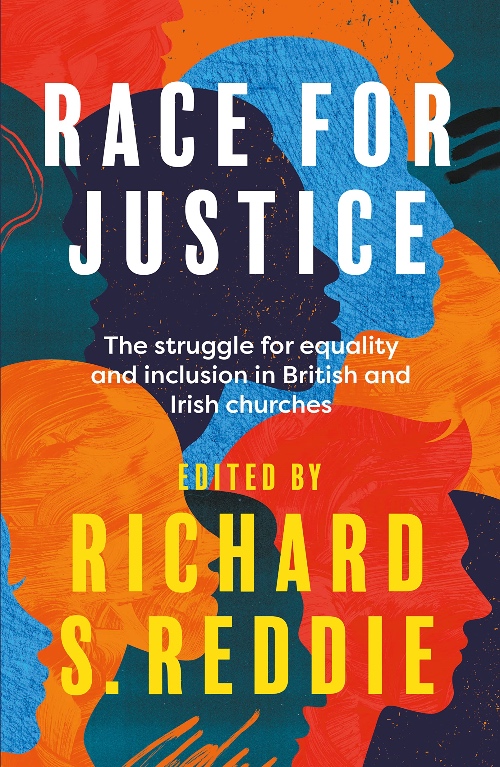The Race for Justice – are the churches winning it?
Richard Reddie introduces a new book capturing what progress churches, parachurch groups and countries have made to address racism since the murder of Stephen Lawrence
 In the spring of 2019, around six months into my tenure as the Director of Justice and Inclusion at Churches Together in Britain and Ireland (CTBI), I convened a meeting with many of the equalities, diversity and inclusion officers in the British and Irish churches. I was mindful that 2020 would be the 25th anniversary of Racial Justice Sunday (RJS) in British and Irish churches and wanted to do something ‘significant’ to mark this occasion.
In the spring of 2019, around six months into my tenure as the Director of Justice and Inclusion at Churches Together in Britain and Ireland (CTBI), I convened a meeting with many of the equalities, diversity and inclusion officers in the British and Irish churches. I was mindful that 2020 would be the 25th anniversary of Racial Justice Sunday (RJS) in British and Irish churches and wanted to do something ‘significant’ to mark this occasion.
One decision we agreed at that meeting was to produce a publication that celebrated the Black, Asian and White Christians who had pursued the cause of racial justice in our churches over the last quarter of a century. That conversation resulted in the booklet, Racial Justice Champions: Volume One, which was published this time last year.
The more ambitious proposal from that meeting was to write a book that would capture all the progress (or the lack of it) that the churches, parachurch groups and countries have made over the same expanse of time to address racism. The outcome of that discussion, after a pandemic-related delay, was the book Race for Justice, which has just been published by Monarch/Lion Hudson.
I had the immense pleasure of editing a book that consists of 14 chapters, written by some of the keenest minds in the church, which explore the ‘journeys of justice’ of the historic denominations, Black Majority Churches and Asian Christian congregations in Britain and Ireland. Race for Justice specifically examines the work that has taken place over that period, and the extent to which churches have tangibly addressed racism, both structural and systemic, within their institutions, as well as speaking out and fighting for racial justice in society.
One of the commonalities in most of the chapters is the fact that certain events proved to be drivers for the churches (and society) to engage in racial justice activities. The most obvious one was the racist killing of Stephen Lawrence in Eltham, southeast London in 1993, which kickstarted RJS in our churches. This tragedy also saw many churches and parachurch organisations appoint ‘racial justice officers’ to address many of the matters raised by Stephen’s murder.
The other event was the police-related killing of George Floyd in the USA in May 2020, which proved to be a Kairos moment for virtually every Christian institution in the country. It was a tragic irony that Floyd’s death occurred in the same year that the churches marked the 25th anniversary, but it did provide an extra impetus to tackling racism, and was a timely fillip to publish the book.
Many of the chapters also contend that while those events resulted in a flurry of programmes, commissions and reports, within a few years churches appeared to lose their appetite for racial justice, which meant that no substantial change came from those activities. Time alone will tell whether the projects and initiatives set in place since George Floyd’s murder, which are also mentioned in the book, will prove efficacious in transforming the church.
What is also revealed in the book is the notion that the churches are in ‘different places’ when it comes to addressing racism and inequality. While some denominations have a long history of engaging in racial justice endeavours (it must be added that ‘long’ does not denote successful), others are still dipping their proverbial toes into racial justice waters. My hope is that these racial justice rookies will read the stories of their more experienced peers, and emulate the best-practice aspects of their work, while avoiding their many mistakes.
A further message found in all of the chapters is one which argues that Christians worship a God of justice, who calls us to be just, and to stand up for justice. Some chapters in particular argue that racial justice is everyone’s business, especially if you are a Christian. Moreover, others assert that while RJS is to be celebrated by all churches in Britain and Ireland on the second Sunday in February, it is important that racial justice is mainstreamed throughout the year and incorporated fully into the lives of churches.
I particularly welcomed the way many chapters feature the racial justice trailblazers who were included in the aforementioned Racial Justice Champions booklet. These Christian men and women were standing up for racial justice (and against racism) at a time when the subject was taboo in most of our churches.
Those yesteryear champions were often rebuked for being troublemakers or purveyors of unpalatable truths; it is only now that they are being seen as ‘prophetic’. Christians today need to replicate their boldness and courage to complete the work they started, which means we all finish the race for justice.
Richard Reddie is Director of Justice and Inclusion at Churches Together in Britain and Ireland (CTBI)
Do you have a view? Share your thoughts via our letters' page.
Baptist Times, 04/10/2022